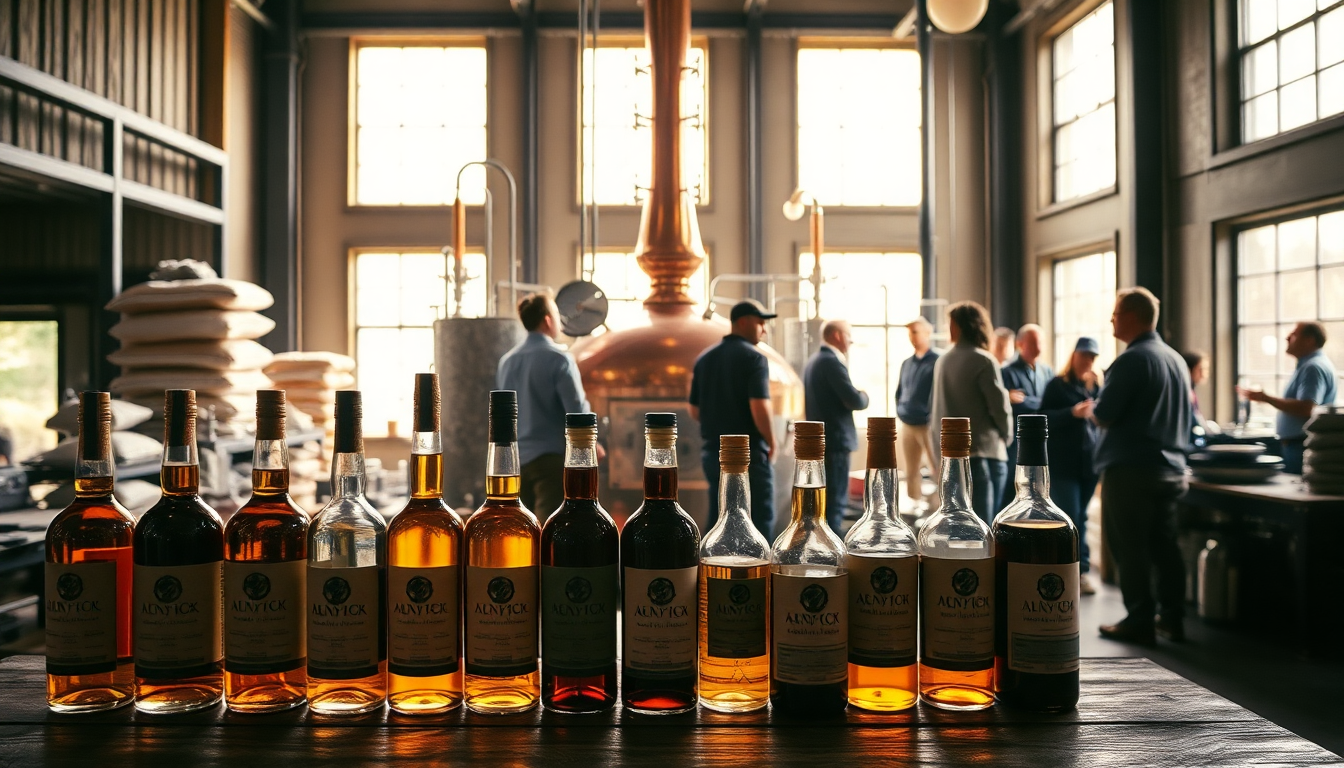Table of Contents
The craft distilling scene in British Columbia is currently at a pivotal moment, with industry advocates calling for urgent reforms to boost its sustainability and spark local economic growth. Have you ever thought about how regulations can impact the drinks you enjoy? Well, industry leaders argue that existing rules are stifling production and squeezing profits, which could be detrimental to the province’s spirits market.
As they engage in discussions with the government, there’s a mix of hope and anxiety among distillers—especially with time running out for the necessary legislative changes.
Current Challenges Faced by Craft Distillers
Tyler Dyck, president of the Craft Distillers Guild of B.C., has pinpointed two critical changes that are urgently needed: a larger share of sales from government liquor stores and the removal of cash penalties for distillers exceeding an annual production cap of 100,000 liters.
Can you imagine facing a 70 percent markup on products sold through government-run outlets? That’s the reality for many craft distilleries, making it incredibly tough to stay competitive. This markup essentially forces producers to navigate a minefield when pricing their spirits, often leading to losses.
“The economic impact of this is significant,” Dyck explains. “Most spirits sold at government liquor stores aren’t even from B.C., which means our local economy misses out. If the government doesn’t support local distillers, it’s essentially leaving money on the table—money that could go toward vital public infrastructure like schools and hospitals.”
Over the past two decades, British Columbia’s craft distilling industry has ballooned from just four distilleries to nearly forty.
However, this growth has hit a snag as producers struggle with high compliance costs and barriers to market entry. Many distillers find themselves at a crossroads, with some facing the grim possibility of shutting down if these restrictions continue.
Comparative Analysis with the Wine Industry
Dyck draws an interesting comparison between the craft distilling and wine industries, noting that winemakers benefit from the Vintners Quality Alliance (VQA) program, which slashes their markup to just 17 percent if they use 100 percent B.C. grapes. “This level of support has allowed the wine industry to thrive, contributing over four billion dollars to the local economy and creating thousands of jobs,” he states.
“It’s only fair that we receive similar support to foster our industry’s growth.”
As interest in local products surges, especially with growing competition from U.S. imports, many distillers are on the verge of hitting their production cap. Instead of celebrating this milestone, however, they are met with the daunting prospect of hefty fines for exceeding the limit. “The choice is stark: either comply and risk financial ruin or defy the cap and face severe penalties,” Dyck laments. This situation underscores the urgency for government action to avert a looming crisis in the industry.
Future Outlook and Government Engagement
Guild representatives were set to meet with Agriculture Minister Lana Popham to address these pressing challenges, but unfortunately, the meeting has been postponed. Still, Dyck remains cautiously optimistic about the potential for reform. “The government has shown a willingness to engage with us, and I believe they understand how urgent our situation is,” he reflects. “However, the clock is ticking, and decisions need to be made soon.”
With the craft distilling industry standing at a crossroads, the call for reform has never been more pressing. Leaders are advocating for a fairer regulatory framework that acknowledges the unique challenges they face, allowing them to compete on a level playing field. The hope is that with timely government intervention and support, British Columbia’s craft distillers can continue to make meaningful contributions to the local economy while offering consumers exceptional local spirits. So, what’s next for these passionate creators? The time for action is now.





